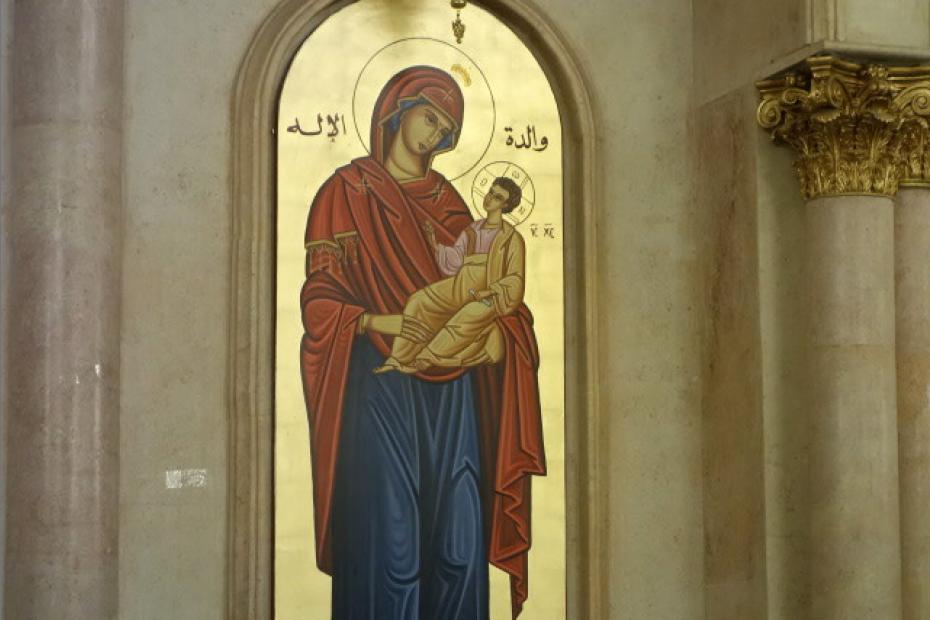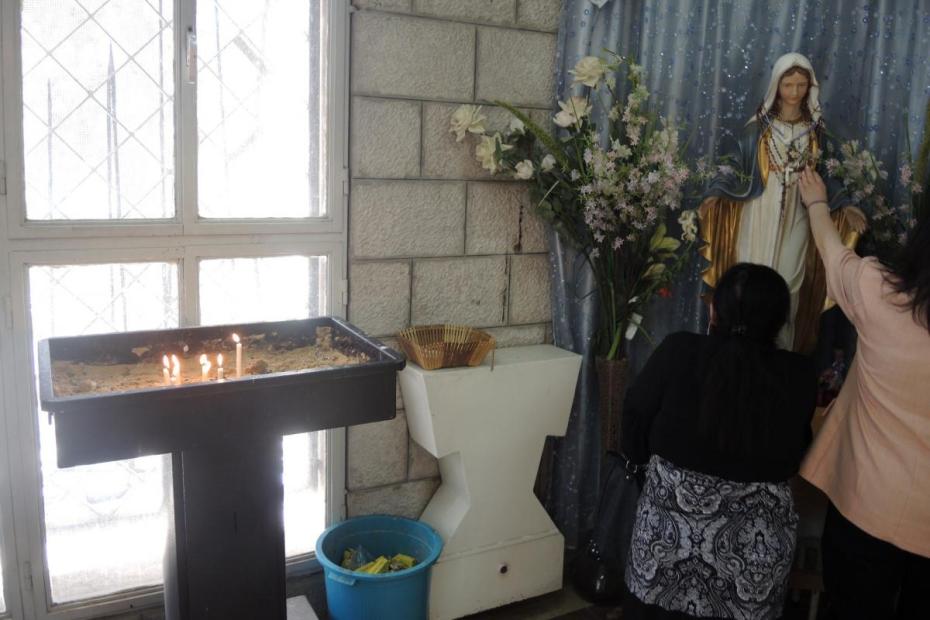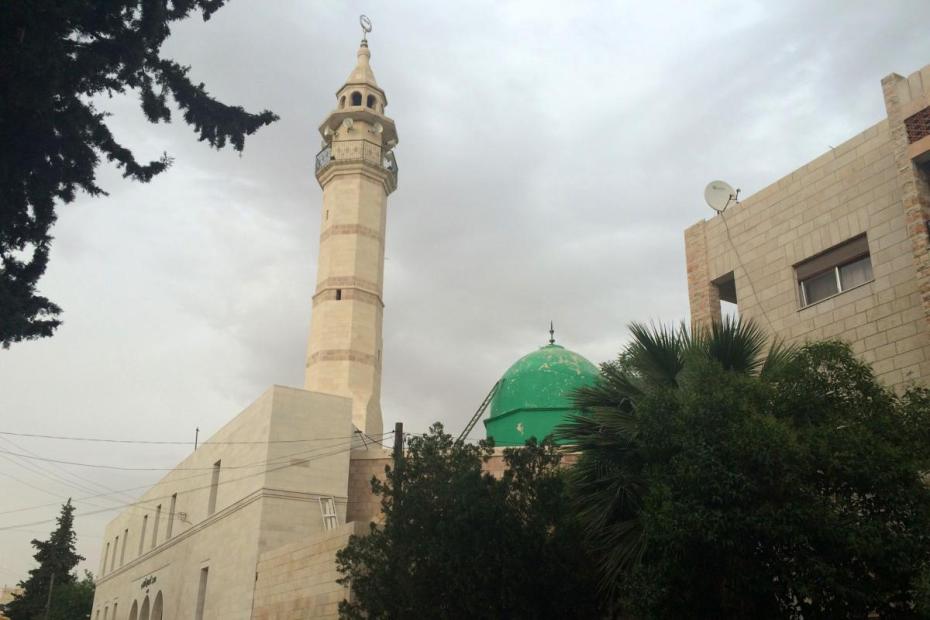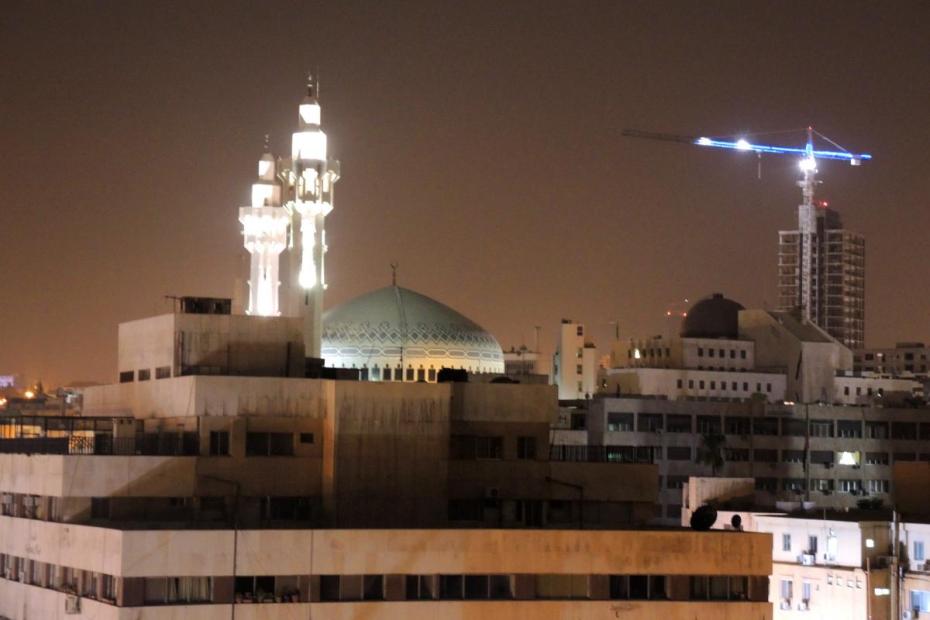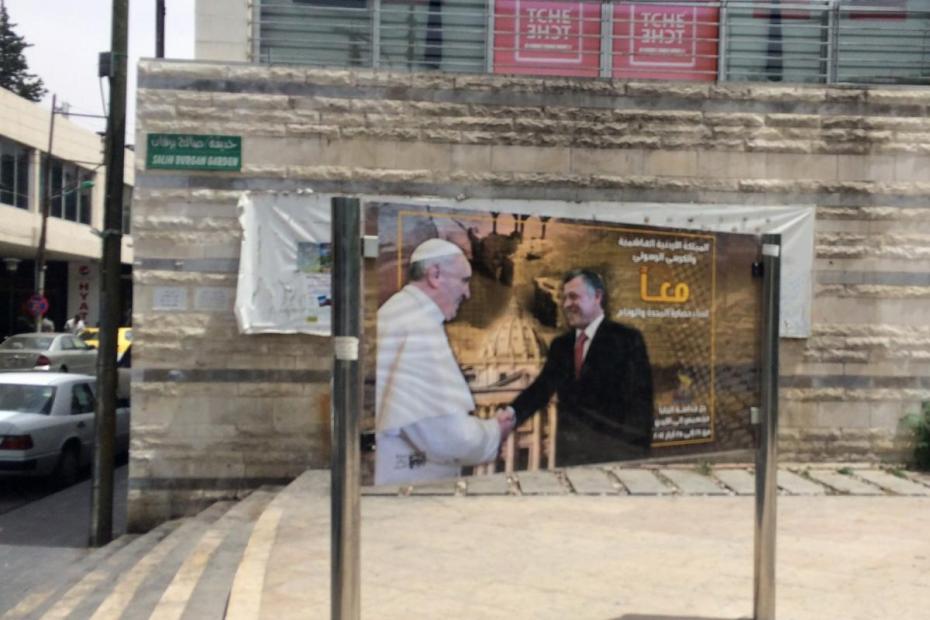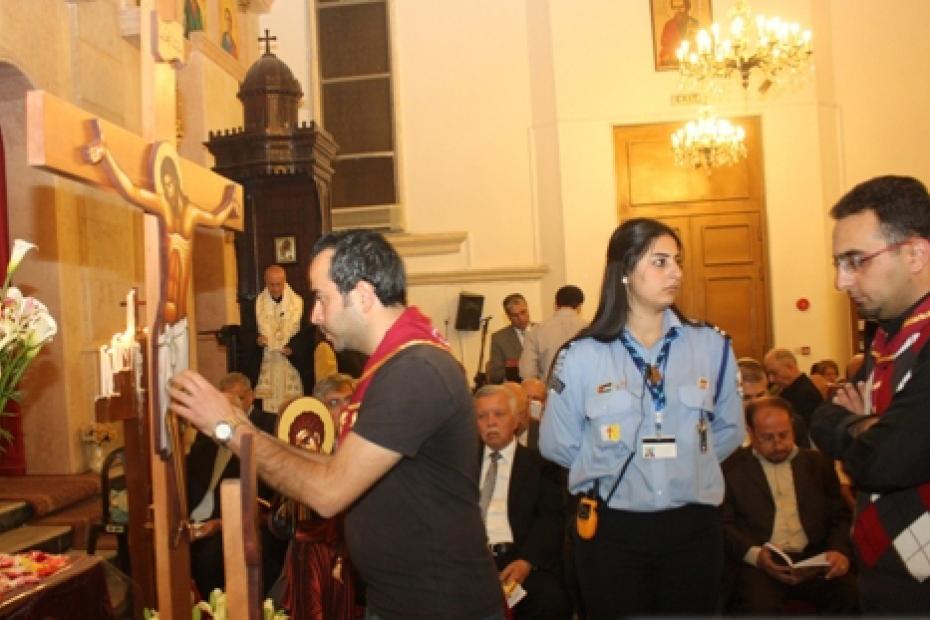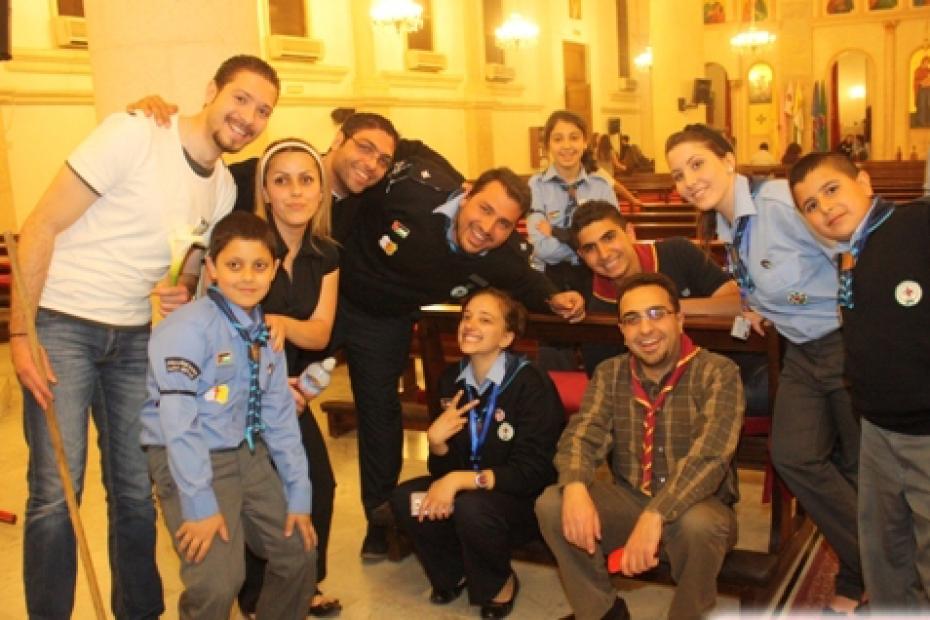The Hashemite Kingdom of Jordan is an Islamic state, and has an overwhelmingly Muslim population. Still, the small Christian community's roots in the country are ancient. The capital, Amman, is only 70 km from Jerusalem, and is home to important biblical events. This is where John the Baptist lived, and where he baptized Jesus in the river Jordan. Moses died on Jordan’s Mount Nebo, from which he first saw the Promised Land. The prophet Elijah lived there. The Catholics and other Christians here are part of a relatively small cohort of Arabs who remained Christian over the centuries. Their culture is Arab, and Arabic is the primary language they use at prayer and in everyday life.
Amman, where this research centers, is a fairly modern city. It has ancient Roman ruins within the city, but this capital city was essentially built out of a village in the 1930s. Residents of Amman generally have roots elsewhere in the country and retain some family connection to village life. Children learn English from second grade onward, and Jordanians are eager to practice it.
Jordan has few natural resources. Most of its economy is service-oriented, and Jordan increasingly provides computer technical services in the region. Even so, nomadic, Bedouin peoples are still a part of the fabric of the country. Christians play a role in politics and the economy, and are said overall to be economically and educationally better off than most Jordanians, in significant part because Christians long had the best schools.
Jordan’s self-understanding is shaped in significant ways by the borders it shares: with Syria and Iraq, both engulfed in war; with Saudi Arabia, which has enormous oil wealth and a much more conservative form of Islam; with Israel and Palestine, whose conflicts it has been part of, and whose refugees have become part of Jordanian life; and with Lebanon, where there are many more Christians, but where there also has been great conflict. In interviews for Catholics & Cultures research,1 these countries were frequent frames of reference for Jordanian Catholics. Interviewees emphasized that in contrast to many of its neighbors, Jordan is a moderate and safe place, where Christians and Muslims integrate easily at work and in public. At the same time, as they looked to situations in neighboring countries, the undercurrent in the conversation was that their safety and stability could too easily be undone. As one Christian woman put it, Muslims and Christians here, “live in harmony. But you can’t guess. You can’t guess who will get inside their heads and try to make them do things. In Syria, it’s not the Syrians, it’s outsiders who come in.” Another interviewee saw signs of things to fear from elements within the country, saying that Jordan, too, has its share of people who “look to the East,” i.e. to more fundamentalist ways of being, rather than "to the West," which to him meant to more moderate, politically secular ways.
Jordanian Christians interviewed expressed strong attachment to the Jordanian monarchy, grateful for the stability it had ensured. They saw the king as a moderating force and a guarantor of their liberty and freedom as a protector from extremism. Most seemed to say that they had as much freedom as the society could support, given the extremism alive in the region, and that any alternatives to a strong monarchy were far more threatening. Jordan's moderation is maintained by a robust government security system. Several interviewees indicated that the secret police were not secret about the fact that they monitor mosques and churches to prevent preaching of extreme or anti-government views.
Honor surfaces regularly in conversation in Jordan as a key cultural value. Families play a major role in policing and maintaining honor, since the loss of honor by an individual has equally significant ramifications for his or her extended family. Hospitality is likewise a core cultural value in Jordan. Locals describe it as a value necessary for survival, where desert people once needed to count on being taken in by others. A family's honor depends in significant part on its willingness to show proper hospitality to others.
Urban interviewees for this project clearly found themselves very much in the midst of competing, powerful forces of tradition and modernity. Though considered problematic in some significant ways, familial kinship networks [link] are a very powerful social, religious and cultural force, perhaps the most significant force in Jordanian culture. A family’s decision still usually trumps an individual’s preferences on questions of marriage and career. Some adults claimed that most young people, if they could, would emigrate for more freedom and opportunity. Several shared examples of clan behavior that they found troublesome, only to ask that these not be repeated online, because they are not how modern Jordanians see themselves or their futures.
Even as they critiqued the Jordanian educational system as being too much about rote learning, Catholics also expressed worry that many clergy, who were more likely to have been raised in villages, were not always capable of ministering to more educated young people who wanted to ask critical questions about their faith and practice.
While Christians say that they interact easily with Muslim neighbors and coworkers, it is equally true that there are strong barriers to ensure that Muslims remain Muslims and Christians remain Christian. Switching between Muslim and Christian identities, or dropping either identity, seems out of the question. An individual could choose to be more or less fervent but has no real option to convert between Islam and Christianity, or to identify with no religious community at all. In light of this, evangelism is rare and never public, and churches effectively exist to minister to their own communities. Families play a significant role in keeping this order in place.2 Interfaith marriage of a Christian and Muslim, even without conversion, would undermine their siblings’ chances for a good marriage.
Christian denominational alliances in Jordan are much more flexible. Catholic and Orthodox leaders have made great strides at ecumenism. Lay people are at least as far along. In interviews, Christians seemed to feel free to worship at different Orthodox or Catholic rite churches, and often seemed to make their choice based on the proximity of the church and the community they found there. Religious identity stayed fixed – for example, one man described himself as Armenian Orthodox but said that he worships at a Latin rite church. As some described it, the tendency to intermingle so freely is in part a result of the minority status and the relative smallness of the Christian community. The default category used by interviewees to describe themselves was Christian, rather than more specifically as Melkites or Catholics or Orthodox.3
Reliable statistics on the Catholic population are said to be hard to find, and many Christians say that their numbers in Jordan are exaggerated to mask the amount of migration that has occurred. A 1999 field study asserted that 37.6% (41,205) of Jordanian Christians were Greek Orthodox, 29.3% (32160) were Latin rite Catholics, 24.8% (27,000) were Greek Catholics, and that Armenian, Maronite and Syrian Catholics totaled only 0.42% (475) of Christians. 4 Chaldean and Syrian rite Catholics have migrated to, but often only through, Jordan since that time.
Christmas and Easter are official holidays in Jordan, the former celebrated according to the Gregorian calendar, the latter according to the Orthodox liturgical calendar.
Read More
Mohanna Haddad, "Christian Identity in the Jordanian Arab Culture: a case study of two communities in north Jordan," Journal of Muslim Minority Affairs, 20 (2000) 137-146.
- 1The entries for Jordan are based on interviews with six Melkite and Latin lay Catholics and shorter discussions a dozen other Melkite, Latin and Maronite Catholics, all conducted in May 2014 in Amman. The interviewees, all from educated, middle class families, may not represent the views and life of working class, poorer, and village Catholics, though the interviewees were connected into villages through family networks.
- 2During this research, the papers and many of my urban interviewees were abuzz at news of a village honor killing. A young woman who was recorded on a friend’s smartphone video claiming to have converted to Islam was killed by her family. Some Christians who knew the village said it was a joke gone awry. Urban interviewees saw it as a wrong, but taken-for-granted, enduring aspect of Jordanian culture. The example may be extreme, but points to the degree the patriarchal system monitors boundary violations.
- 3For a perspective on mobility between denominations in a prior generation, see Mohanna Haddad, "'Detribalizing' and 'Retribalizing': The Double Role of Churches Among Christian Arabs in Jordan: A Study of the Anthropology of Religion," The Muslim World 82 (1992) 67-89.
- 4Muhannā Yūsuf Ḥaddād, Christians in Jordan: a Split Identity (Jerusalem : Harry S. Truman Research Institute for the Advancement of Peace, Hebrew University of Jerusalem, 2001) 13.

